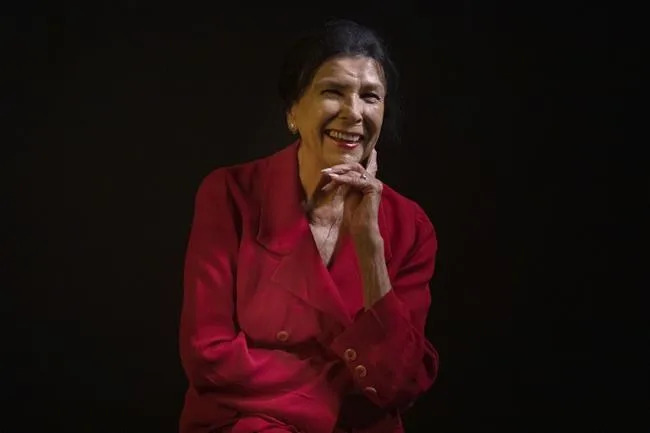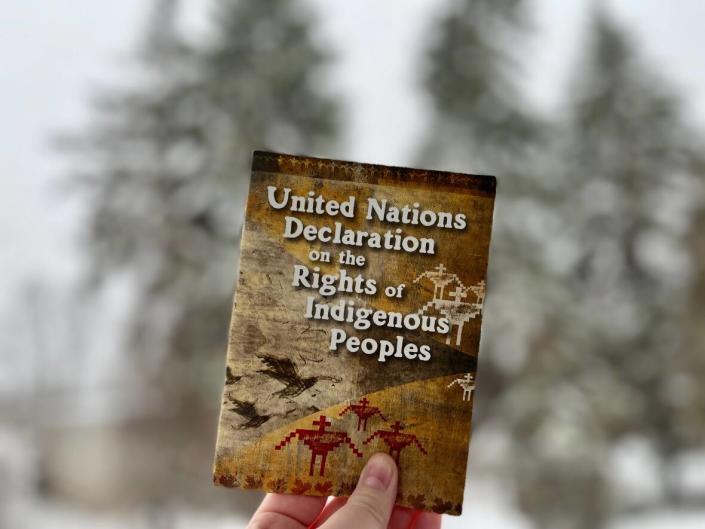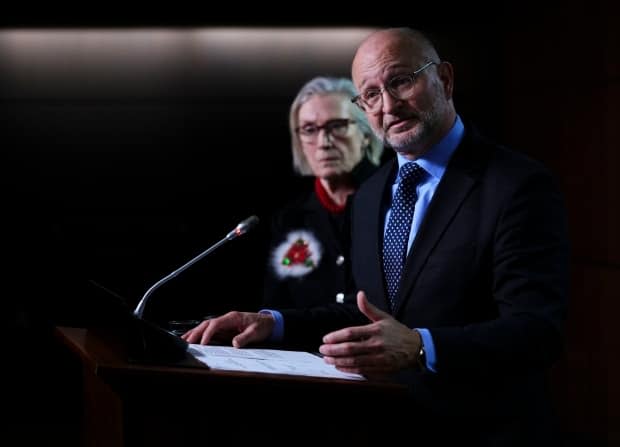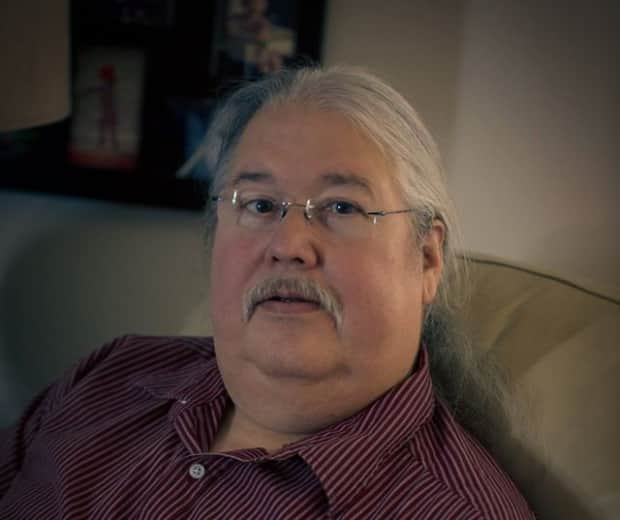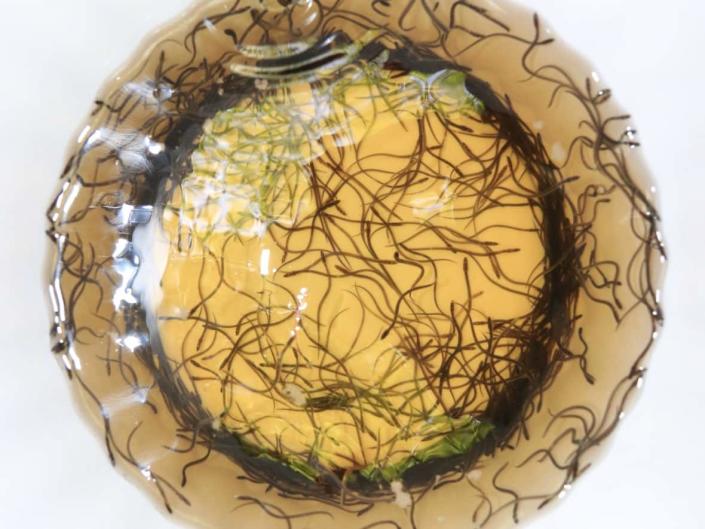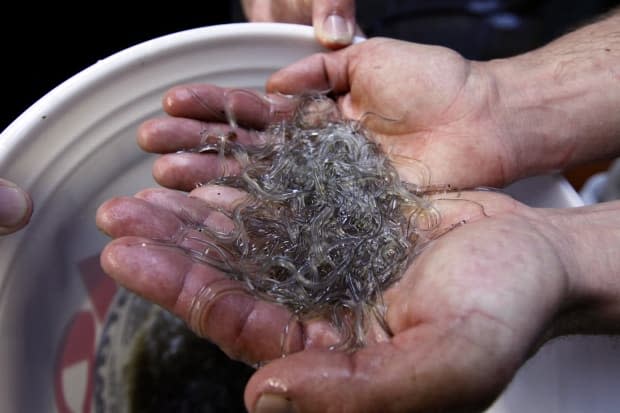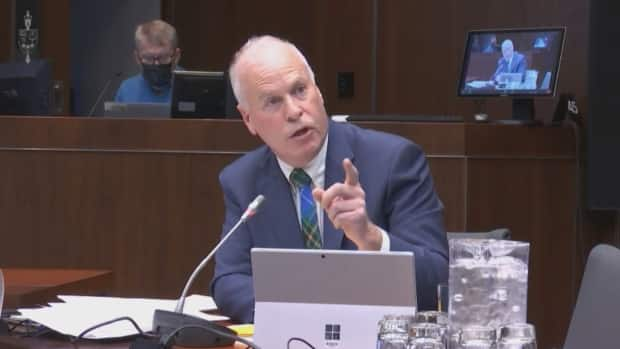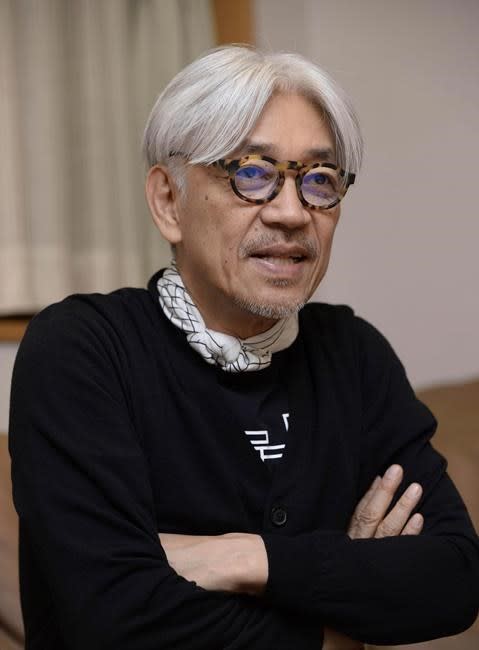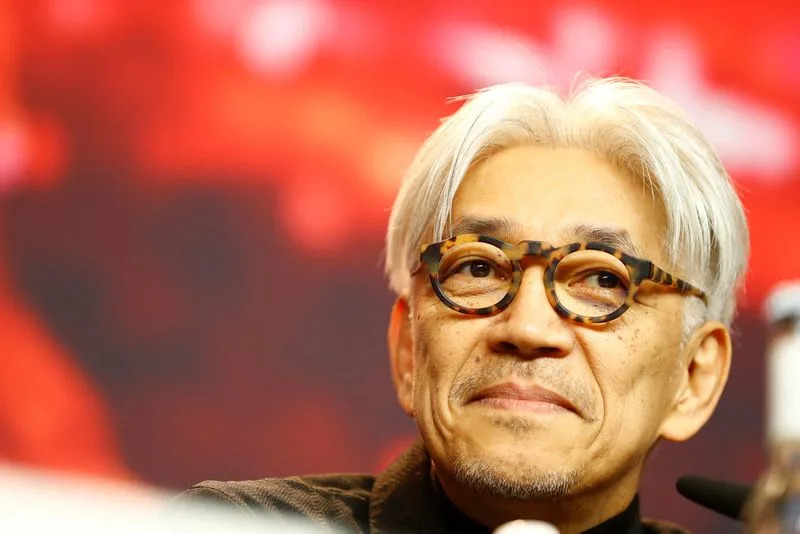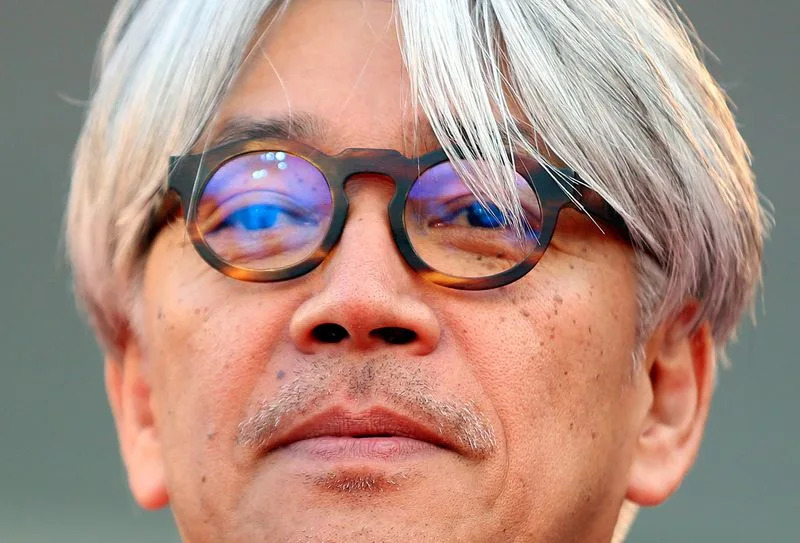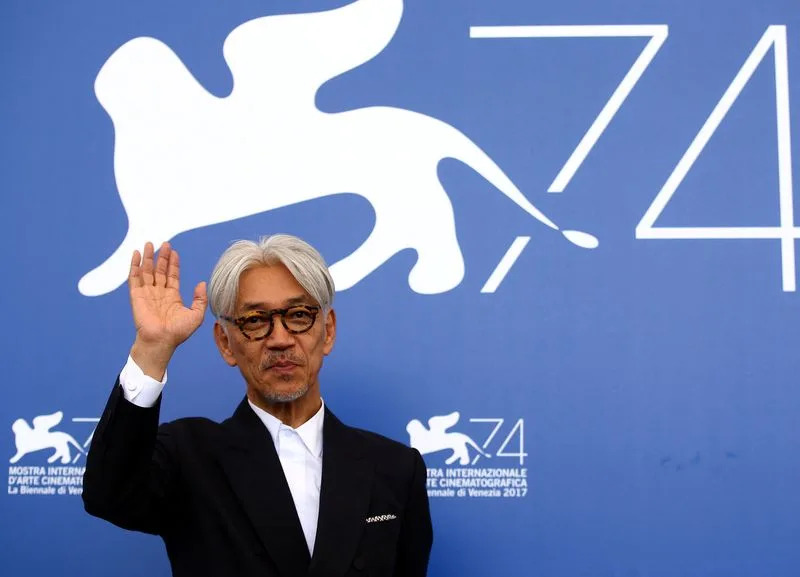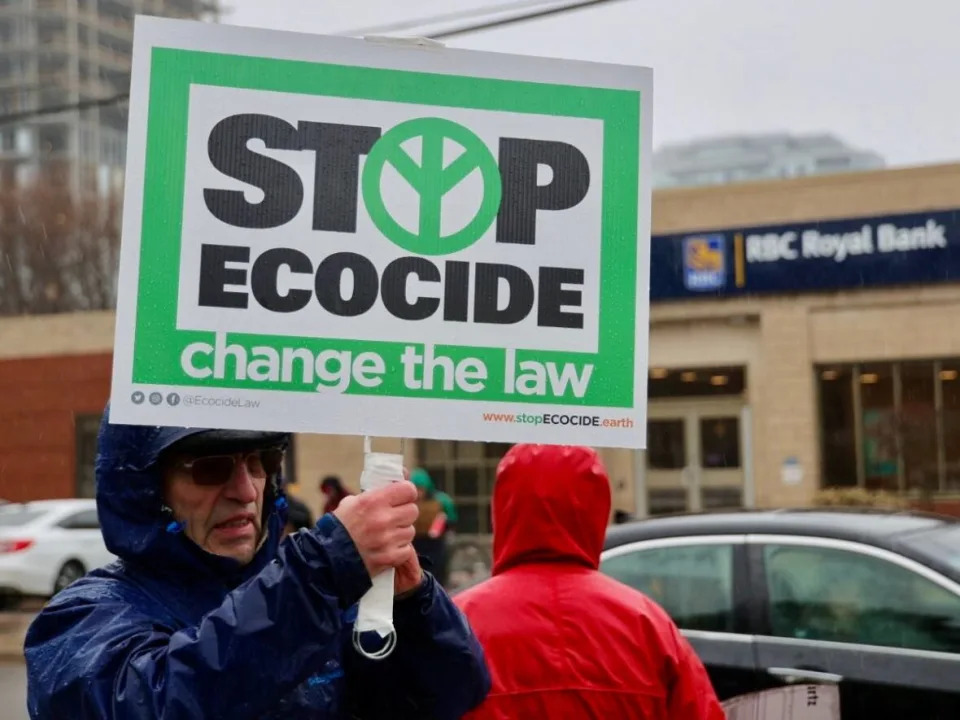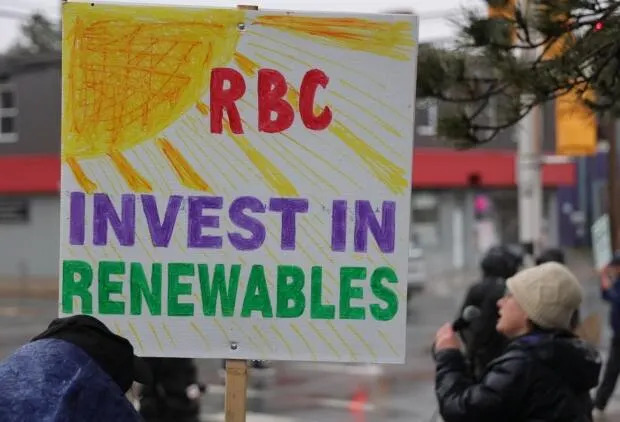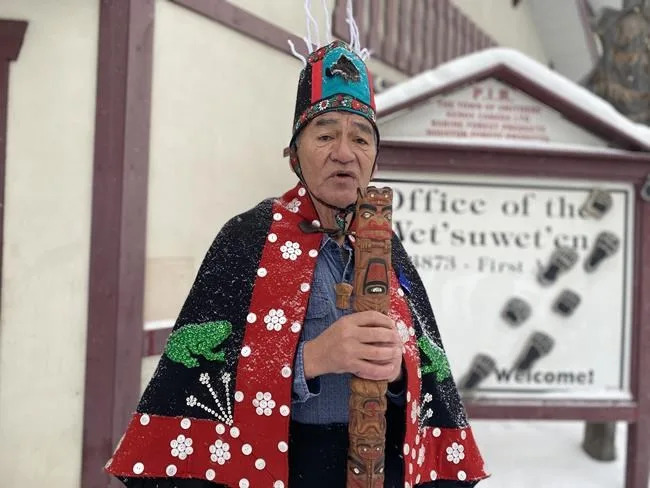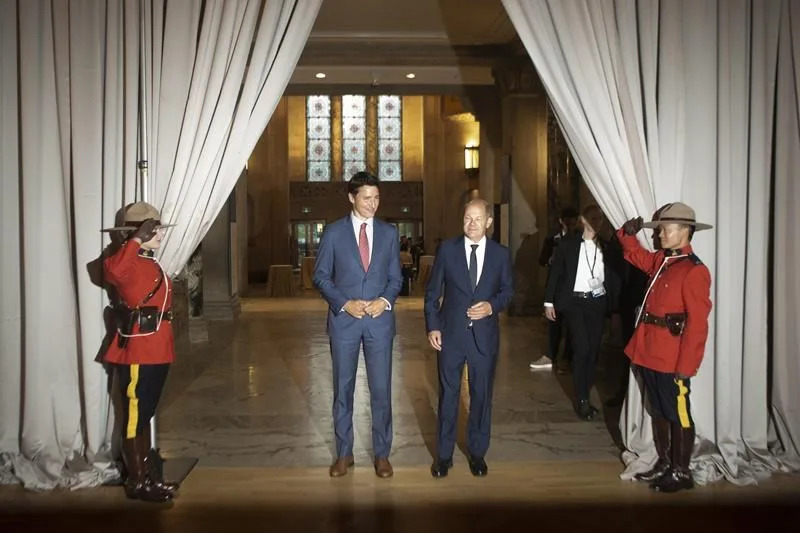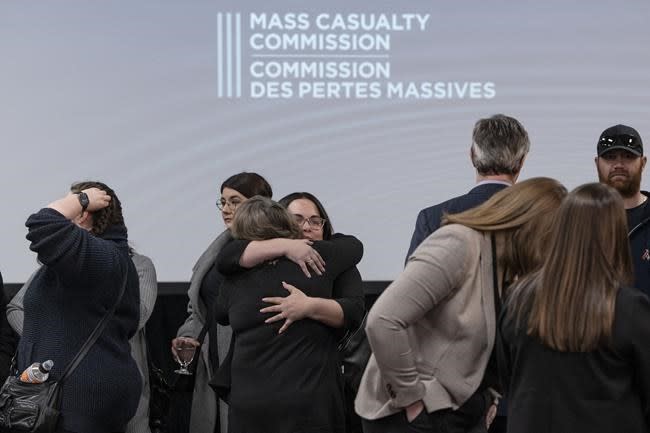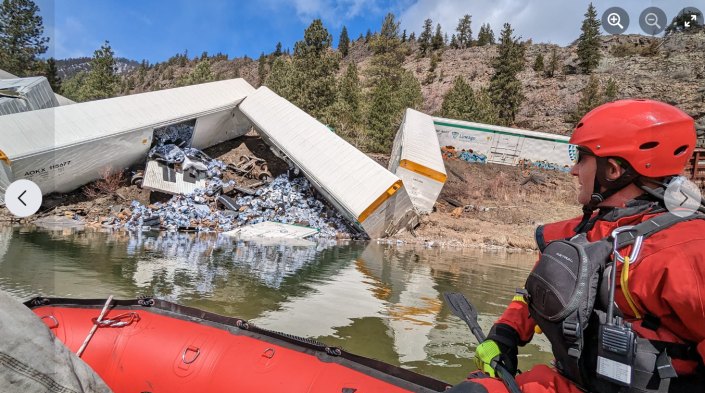'Love is louder': Community comforted by large turnout in support of transgender rights
CBC
Sun, April 2, 2023
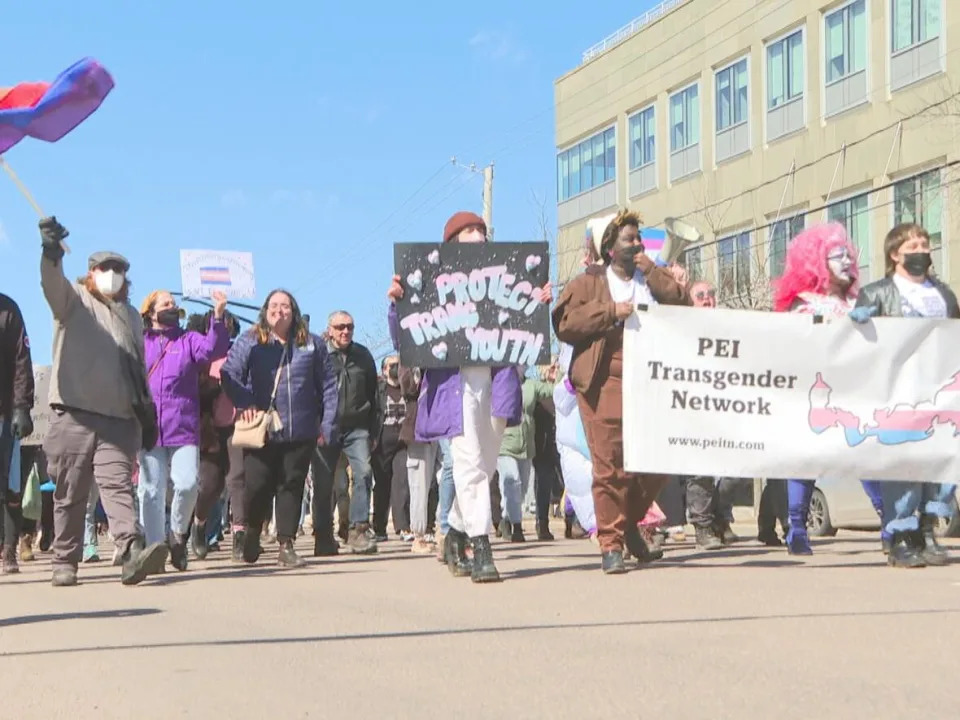
More than 200 people march along Great George Street in Charlottetown in support of transgender rights. (Tony Davis/CBC - image credit)
Members and allies of P.E.I.'s transgender community say the large turnout for a rally in support of transgender rights on Sunday brought them a "ton of joy" and made them feel safe in a time when bigotry is on the rise.
More than 200 people marched in downtown Charlottetown, carrying signs that read Protect Trans Youth and Trans Men Are Real Men and chanting slogans such as "We're here. We're queer. We won't disappear."
Lucky Fusca, executive director of the P.E.I. Transgender Network, said the march was about transgender joy, increasing visibility of the transgender community and standing up to transphobia.
"The emboldenment of bigoted beliefs and hate has been really loud and we wanted to gather today to show our community and to show our allies that love is louder," Fusca said.
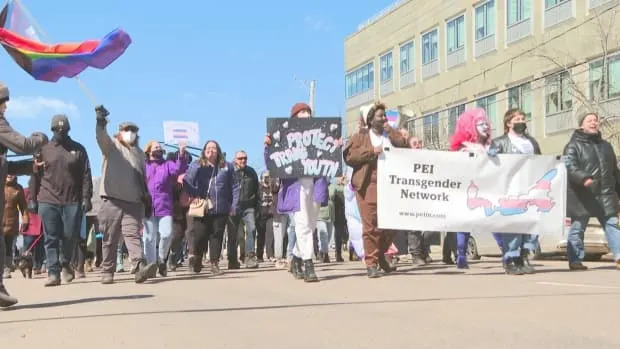
Tony Davis/CBC
Last month, a storytime event featuring people dressed in drag that was planned for the Kings Playhouse in Georgetown was cancelled after it was the target of online attacks. It has been rescheduled for April 15.
Fusca said they were grateful to see so much support on Sunday.
"When I turned around and saw how many people were following in tow, it was healing for me. It brought me a ton of joy and made me feel safe," Fusca said.
Police were not notified in advance of the demonstration, but there was little traffic disruption.
Fusca said they did not see any people protesting the march other than a a few "head shakes."
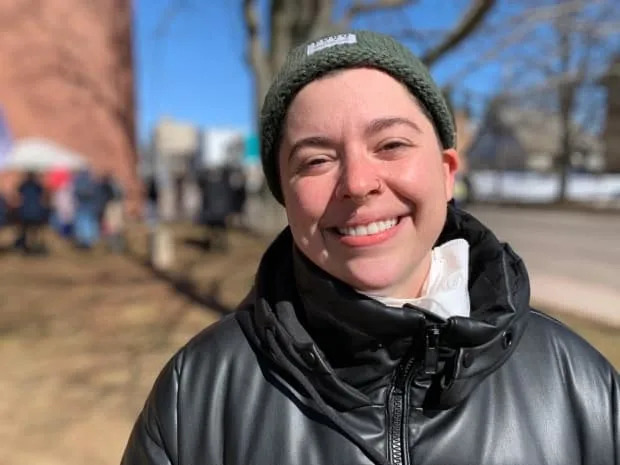
Tony Davis/CBC
The march was part of a week of all-ages events hosted by the P.E.I. Transgender Network called "Break the Cis-tem." Fusca said they hope to have similar events in the future.
Kali Ross, who sits on the board of the P.E.I. Transgender Network, said there have always been queer and transgender people in the community, and always will be.
"No matter the hatred that people spread and the bigotry, that does not erase the trans community, the queer community, no matter what," she said. "So, it's really important that we're here and we're … spreading that message and taking space up."
CBC
Sun, April 2, 2023
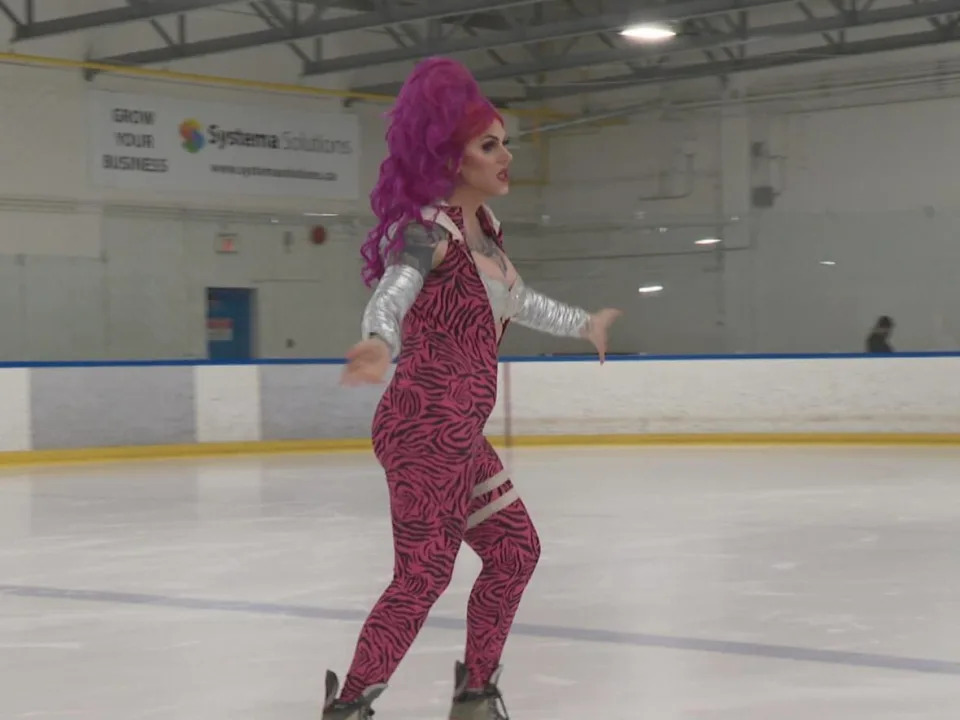
Karla Marx was one of the organizers of Saturday's Drag on Ice event. (Terri Trembath/CBC - image credit)
It took more than a month, but the show eventually did go on.
Drag on Ice, an event originally scheduled for Feb. 10 during Calgary's annual Chinook Blast festival, was postponed due to safety concerns surrounding protests and demonstrations at the time.
On Saturday, performers finally took to the ice at the Henry Viney Arena. It was one of several events happening at more than 40 venues across Calgary that day to stand in solidarity with the drag community.
"It just shows that while there are vocal opponents, they are a minority. Especially when you're in the online world, their voices seem ubiquitous," said Karla Marx, a drag queen and one of the organizers of Saturday's ice performance.
"But then you come out to an event and you see who shows up, how many people show up."
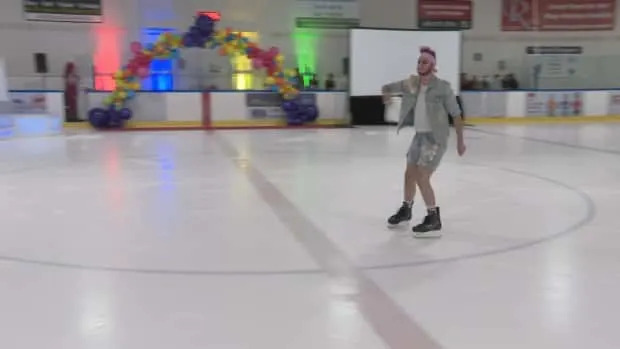
Terri Trembath/CBC
Marx recalled riding a float during the Calgary Pride Parade last year where, she says, thousands of people were outside in "sweltering heat" supporting and cheering others on.
"I will always keep that memory," she said.
Among the venues that held a pop-up event on Saturday was local pub Ship and Anchor. Fostering a welcoming environment is something the business says it holds to a high regard.
"It's always been a place that we've tried to keep safe, inclusive. That goes for not just our staff, but our regular customers are people we treat like family.… Their safety and comfort and inclusivity within this environment is very important to us," said Nick Lake, a floor manager at Ship and Anchor.
"A lot of people who walk through our doors, they continue to come through these doors in particular because of why we uphold that."
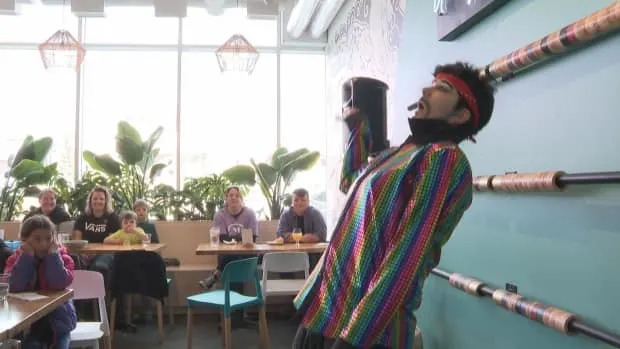
Terri Trembath/CBC
Across the country in recent months, protestors have rallied against various drag events — the most vocal of whom include members of alt-right groups.
Following demonstrations at a drag event held at the Seton Library, the City of Calgary passed a safety bylaw in March — titled the Safe and Inclusive Access Bylaw — that prohibits protests within 100 metres of an entrance to a recreation facility or library.
The city also updated an existing street harassment bylaw to further address ongoing concerns about the safety of the 2SLGBTQ community.
"There's a lot of people who are interested in promoting hatred instead of inclusivity," said Mayor Jyoti Gondek. "What we've got in Calgary is a point in time where the folks in this city are saying, 'We're not down with that, we don't appreciate that.'"
Both bylaws are set to be discussed again later this month.
The Canadian Press
Sun, April 2, 2023
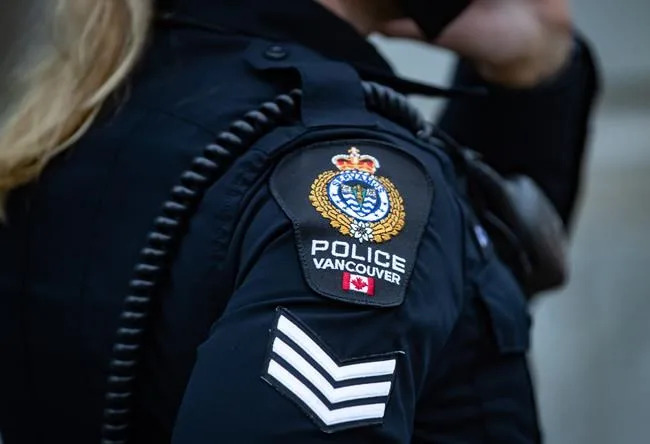
VANCOUVER — The deputy chief of the Vancouver Police Department says he is "appalled" by the "vile and abusive comments" officers have received on Twitter after a Friday rally in the city turned violent.
Deputy Chief Howard Chow took to the platform to respond to online criticism of the department's policing tactics and for not making arrests at the International Transgender Day of Visibility rally.
Police issued a news release Saturday saying they had begun investigating "violent confrontations" that occurred when people attending the demonstration confronted a group of counter-protesters inside Vancouver's Grandview Park.
The department has alleged at least two people were assaulted but did not provide further details.
Chow says policing demonstrations and protests are challenging, and protecting the right to free speech is "one of the most important" aspects of the job.
Investigators say they have reached out to a victim who posted a video of an assault online, and have invited that person to meet with detectives to provide a statement.
Chow says though officers did not make arrests at the time, that does not mean they won't do so in the future.
"We're used to having cameras on us, (and) some even try to set it up to elicit a particular response. It's all fair game. Never easy to give an immediate answer to a chaotic scene where you simply don't have all the facts yet. That's why we investigate and sometimes it takes time," he said on Twitter.
Police have also shared parts of video and images posted online by a victim, and are appealing to those who saw the altercations to reach out.
They said in the news release that there may be more witnesses who have not spoken to police, as well as bystander videos that may show different perspectives of the incident.
"Our full investigation into the matter will determine the outcome of criminal charges," Chow Tweeted. "This will involve different camera angles, witness accounts, video reviews, etc. Sometimes, jumping in and arresting one or two at the moment will only incite or inflame the situation."
This report by The Canadian Press was first published April 2, 2023.
The Canadian Press
Voices: The marginalisation of trans people by the gay community is beyond unhelpful – here’s why
Catherine Kelly
Sun, 2 April 2023
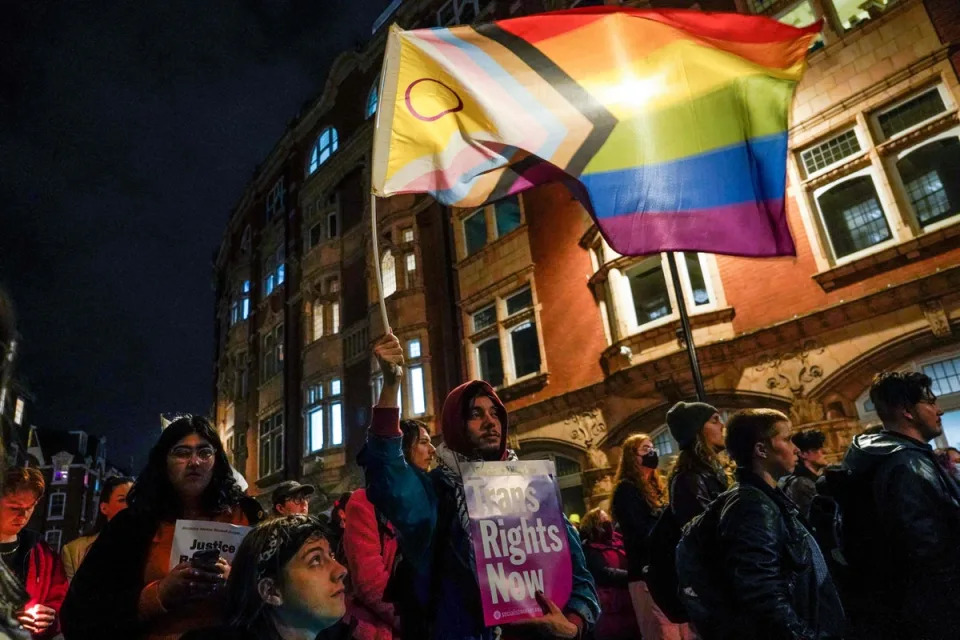
Voices: The marginalisation of trans people by the gay community is beyond unhelpful – here’s why
It’s rarely a good idea to reread diaries from your teenage years. Recently though, I found a passage from my own that made me laugh. At 15, on the verge of coming out as a lesbian for the first time, I wrote that I hoped telling people about my gay identity would help me to stop thinking about it all the time. It didn’t work out that way.
In fact, I have spent the last three years researching the history of lesbian feminist writing and activism for my PhD. I spend a lot of my waking hours thinking about what it means, and has meant, to be a lesbian.
You might assume, then, that I would be excited by the prospect of a new organisation promising to platform the needs and experiences of lesbians in the UK. Founded by academic Kathleen Stock and journalist Julie Bindel, the Lesbian Project promises to champion lesbians.
However, scratch the surface and you’ll find that this group, like the LGB Alliance, is more interested in excluding trans women than in supporting the lesbian community (which is deeply supportive of the transgender community). In fact, the group explicitly excludes transgender lesbians, as Stock confirmed in an interview on BBC’s Woman’s Hour.
In recent years the media conversation about transgender lives has become increasingly toxic, and somehow lesbians have become a key part of it. This so-called debate – which in many ways The Lesbian Project epitomises – has left me frustrated and angry. Once again, my identity as a lesbian is being used as a cover for transphobia.
So how did we get here? If you’re familiar with Bindel and Stock, the exclusionary policies of their organisation won’t surprise you. They are leading figures in a small but vocal group of “gender critical” people. Their claim that trans people can’t be part of the lesbian community is one that I know, from my research and my own life, is simply untrue.
The rights and experiences of LGBTQ people have always been intertwined – trans people have been at the centre of struggles for lesbian rights for generations. Lesbian history is not a simple or harmonious one. We have often disagreed, and trans lesbians have faced appalling transphobia in their struggle to be included in the lesbian feminist movement.
But it’s also a history marked by moments of bravery and solidarity between cis and trans lesbians. One example of this is the Lesbian Avengers, a 1990s activist group who defended the rights of trans women in women-only spaces.
As a cis lesbian, I find the arguments from anti-trans feminists to be both nonsensical and dangerous. Their fears about a lesbian identity in “crisis” – despite evidence from the most recent census that there are more of us than ever – are unfounded.
Tellingly, in their fight to exclude trans people from public life, this fringe group of “gender critical” feminists have allied themselves with a right-wing anti-LGBT movement that targets drag queen storytimes and inclusive sex education.
It’s important to note that many of the arguments being used against trans people are eerily similar to the prejudiced language that was once more commonly heard about cis lesbian, gay and bisexual people. Take education – until 2003 it was illegal for teachers in the UK to speak positively about gay relationships, or for schools to teach books with gay characters. We saw how Section 28 harmed a generation of LGBTQ+ people.
Now we are seeing these debates repackaged and directed at trans children. When anti-trans campaigners deny the validity of trans identities, they echo the sneering language of Section 28 which dismissed queer couples with children as “pretended family relationships.” We owe it to future generations to not repeat the mistakes of the past, and instead prioritise an inclusive education system so that all children have the freedom to be true to who they are, access their potential and pursue their dreams.
Stock and Bindel have tried to pre-empt some of the criticism that’s been levelled at them already, acknowledging that lesbians are a politically diverse group and that many lesbians will disagree with them and their views.
They’re right about that; over a thousand people have signed an open letter condemning the Lesbian Project for its discriminatory trans-exclusionary policies. And last week, hundreds of trans and cis lesbians and queer people danced in the street outside the Lesbian Project’s inaugural event, in a “counterparty” thrown by a new group, The Dyke Project – which describes itself as “a collective of trans, cis and nonbinary dykes and queers of all persuasions” – to show what our community really looks like.
To me, this description reflects the community I know and love. The Dyke Project kept the event off social media, letting news of it spread through word of mouth. The crowd that turned up on Saturday is a testament to the strength of our community, and to the solidarity and care we show each other when some of us are under attack.
I came along because I wanted to share my anger and sadness at the way a rising tide of transphobia in the UK is harming the people I love, but I left feeling a little bit lighter. Drag kings, DJs, dancing in the streets – this was the lesbian community doing what it does best: finding space for joyful resistance.
As someone who studies lesbian history, I was moved to see tributes to that history all over the protest. One banner read “a day without trans people is like a day without sunshine”, a reference to a pro-lesbian banner at a 1979 San Francisco Pride march.
The 1979 banner was itself a tongue-in-cheek reference to anti-gay campaigner Anita Bryant, whose advertising campaign for orange juice carried the slogan “A day without orange juice is like a day without sunshine”. Bryant’s homophobic campaign, with its cry of “Save Our Children”, bears a chilling resemblance to the UK’s current moral panic about trans identities. If there’s one thing that LGBTQ people can learn from the history of anti-queer campaigns, from “Save Our Children” to Section 28, it’s that we’re stronger together.
A few days after the protest, the organisers tweeted that “trans dykes and cis dykes stand together and we always will”. It’s up to us to make sure that this is true. We can’t allow a small minority of vocal lesbians – and their friends in power – to put our trans lesbian sisters at risk, and we can’t allow them to speak over the wider trans-inclusive lesbian community. At its best, this community is brave, united and committed to justice. I’m proud to be a member.

